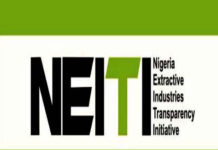
NITDA Bill And Viable Stakeholder Engagement, By Inyene Ibanga
Recent developments in the Nigerian tech ecosystem is heralding interesting times ahead, as stakeholders are poised to contribute their inputs to the proposed bill for the repealing and re-enactment of the National Information Technology Development Agency (NITDA) Act 2007.
While there is unanimity among stakeholders on the imperative for an amendment of the extant NITDA Act, however the provisions of the proposed legislation has generated strident criticisms, anxiety and rage among tech industry operators.
These operators have raised alarm over the provisions of the bill, describing it as not only ‘restrictive’, but purposely set to stifle the industry that is currently rated as the fastest growing sector and leading contributor to the country’s Gross Domestic Product (GDP), according to latest reports released by the National Bureau of Statistics (NBS).
According to some of these stakeholders, the ‘leaked’ copy of the proposed bill indicates calls for concern, as the levies, penalties, and sanctions therien appear hostile and would be inimical to the wellbeing of the startup ecosystem in Nigeria.
We should recall that in March, NITDA presented the proposal for the amendment of its Establishment Act, which would make it in line with the principles of the Nigeria Digital Economy Policy Strategy and the Fourth Industrial Revolution (4IR), to the relevant committees of the two chambers of the National Assembly.
Briefing the lawmakers then, the Director-General of the agency, Kashifu Abdullahi, said the proposed law was aimed at repositioning the sector to enable startups and operators thrive in an environment where their rights and the national interest are guaranteed.
It is instructive to note that stakeholders unanimously recognise that the extant law establishing the Agency is obsolete and they are calling on NITDA to hold further consultations before the proposed amendment becomes law.
This is the best option for the agency to follow as a demonstration of its avowed commitment to constantly engaging with stakeholders on issues relating to the tech sector.
No doubt, the controversy surrounding the so called ‘leaked’ proposal has stirred unnecessary apprehension within the tech community.
But the situation on ground is far from the impression being created by those who are uncomfortable with the content of the proposed legislation, which is yet to be forwarded to the National Assembly.
Yet, one begins to wonder what the source of this ‘leaked’ document could be? And to what intent and purpose was it ‘leaked’? Perhaps, this is an attempt to foster conflict within the IT sector in order to rubbish the ongoing innovative transformation, positive disruption, and expansion being witnessed in the digital economy.
True, there might be genuine reservations about the amount indicated as levies, penalties and sanctions for any violation of the provisions of the bill, but those are not the only areas of importance.
Rather than throwing the IT sector into chaos, the issues, shortcomings or fears that are seen as ambiguous in the bill could be sorted out by engaging with the sector regulator through the proper channel, which is open to all stakeholders.
Read Also:
To entrench sustainable growth in the IT sector, regulations should be progressive, with the aim of facilitating digital innovation, building trust and stability, while protecting the rights and interests of the regulator and operators, without any party taking undue advantage of the other.
It is noteworthy that stakeholders are already calling on NITDA to hold further consultations before the Act becomes law. This is the best option for the agency to follow as a demonstration of its avowed commitment to constantly engaging stakeholders on issues relating to the tech sector.
To this end, there is every reason for all the parties to come to the table by trusting the process, which promises to engender expansive and strategic engagement among all players in the IT community, towards a harmonious resolution of some of the grey areas in the proposal.
NITDA has assured of its preparedness to drive the engagement process and wide consultations to enable stakeholders understand the licensing, permits, levies, fines and other thorny issues in its proposal.
Also to enable the IT community get clarity on the rationale for the proposal and its potential benefits and impacts on the tech ecosystem. This would certainly clear the fears about the perceived threat to startups in the industry.
In response to the apprehension over the contents of the ‘obnoxious leaked’ copy of the proposed NITDA amendment bill, the Agency has expressed its determination to carry along all stakeholders to ensure, “Nigeria benefits maximally from the global digital economy”, as it commences the process of repealing and re-enacting the NITDA Act, 2007.”
According to Mrs. Hadiza Umar, Head of Corporate Affairs and External Relations at NITDA, that the focus of the proposed bill is to properly transform Nigeria into Africa’s foremost digital economy, provide an innovative environment for all to thrive by addressing contemporary digital issues, and build trust and protect the rights and interests of players in the ecosystem.
To achieve this, NITDA is embarking on a coordinated stakeholder-engagement programme with the objective of collecting a wide-ranging spectrum of suggestions and ideas that would crystallise into the draft proposal before presentation to the National Assembly.
The agency maintains that it needs to “proactively manage their adoption through the development of a stakeholder-led robust regulatory architecture to enable Nigeria to maximise the benefits of such technologies and mitigate the negative consequences.”
Major highlights of the remaking of the NITDA legislation, among many others, include, creating a framework for promoting the startup ecosystem; promoting indigenous products and services through standardisation; and entrenching stakeholder participation in developing regulations through the rule-making process.
NITDA has also come out to reassure IT sector stakeholders that the process will be transparent and subjected to comprehensive stakeholder engagements, while urging stakeholders to join hands with the Agency on the journey to the successful passage of the Bill, after all fruitful consultations.
Hopefully, this is one piece of legislation that would advance Nigeria’s effort to take advantage of the potentials and gains of a profitable digital economy for prosperity and further deepen favourable relations across all the players in the IT sector.
Inyene Ibanga is Managing Editor TechDigest and writes from Wuye District, Abuja











































